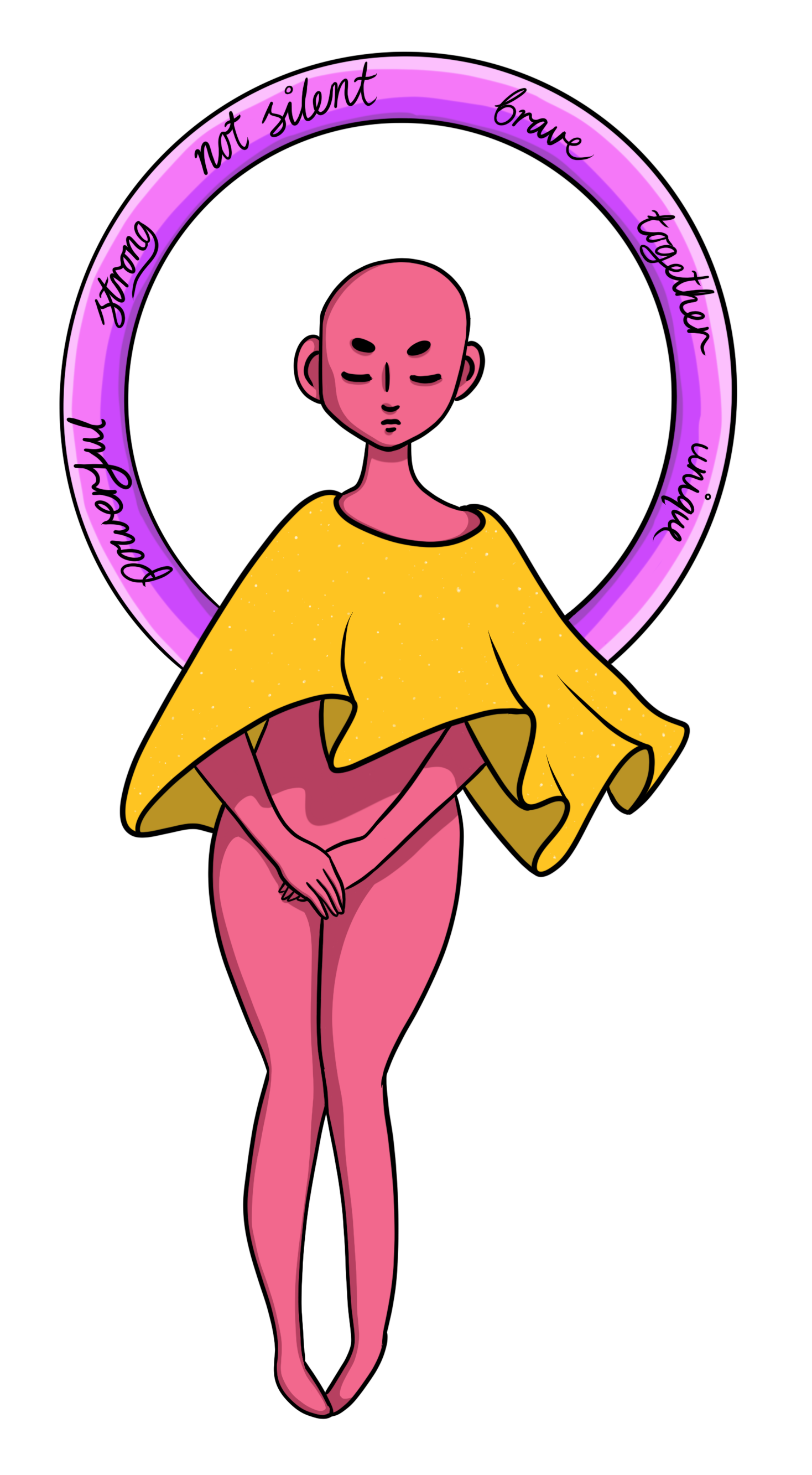
You’re so close you can’t hear me
Zuza Piontke
Three years ago, I came out for the first time and shared my story of living with MRKH (Mayer-Rokitansky-Küster-Hauser syndrome). It was one of the most difficult and important moments in my life, which sometimes still has unpleasant consequences, affects my relationships and the way I am perceived. However, I do not regret choosing to share this about myself as it has been able to support people who need it. Quite quickly though, the label ‘intersex’ was imposed on me without any explanation of what it meant and I was invited into a community I didn’t want to be a part of. It was all completely incomprehensible to me at the time. My reluctance was caused by ignorance, uncertainty, and fear because it was a completely new experience. I guess I was just scared. This was not clear to everyone because, if you speak up and share your story, there is an assumption that you are brave, that you have worked everything out, and that you can deal with anything. But I didn’t feel that way.
It wasn’t until a few months ago that I began to define myself as an intersex woman. How I defined myself was challenged once again. During an interview, one of the journalists started to question whether being seedless* (having MRKH) meant being intersex. Then some people I told about my experience said that it was nothing new and my coming out as seedless was synonymous with defining myself as inter (intersex). It seems that because I have MRKH, I’m considered somewhere between being a woman and being queer, always inadequate and mismatched. At least, this is the most common narrative about people with MRKH. Some people think we do not deserve to belong in women’s circles due to our absence of menstruation and inability to get pregnant. Yet because heteronormative ideas are forced upon most of us, it is also difficult to become part of the queer community, where some of us want to belong but find it challenging to fit in.
Seedless people are silenced. In Poland, very few doctors are able to help us. We still have to educate them, pretend and adjust, and when we speak we must fit in to a space predefined for us. Over the past three years, I have realised that giving someone space to speak is very important but also challenging. Allies can’t force someone to share their story or define themselves in a specific way. It seems pretty logical and straightforward, but in all of this, it is easy to get lost and get so close that we stop hearing the person who we invited to express themselves in the first place. Being an ally requires not only a willingness to act but also a large dose of empathy and willingness to listen, which not everyone has or is able to do. If you want to be a good ally, you must remember that someone is sharing their experience with you and that you become responsible for that person’s message.
I just wish I could act without thinking about how others will perceive me and how they will interpret what I say or do. I wish I could act without feeling like I need to comply with someone else’s rules. I wish I could stop always thinking about how my activism impacts my daily life. I am constantly afraid of all these things and I’m tired of this fear. I want to finally be able to think about myself and not blame myself for it.
* Bezpestkowe (Seedless) is a project founded in 2018 that aims not only to actively support people with Mayer-Rokitansky-Küster-Hauser syndrome, but also to raise awareness and educate the public. The name refers to the seed of fruit and compares it to the uterus—stone fruit differs from seedless fruit only by having a seed, which after all does not define anything. bezpestkowe.pl
This piece is a translation of the Polish text – Jesteś tak blisko, że mnie nie słyszysz.